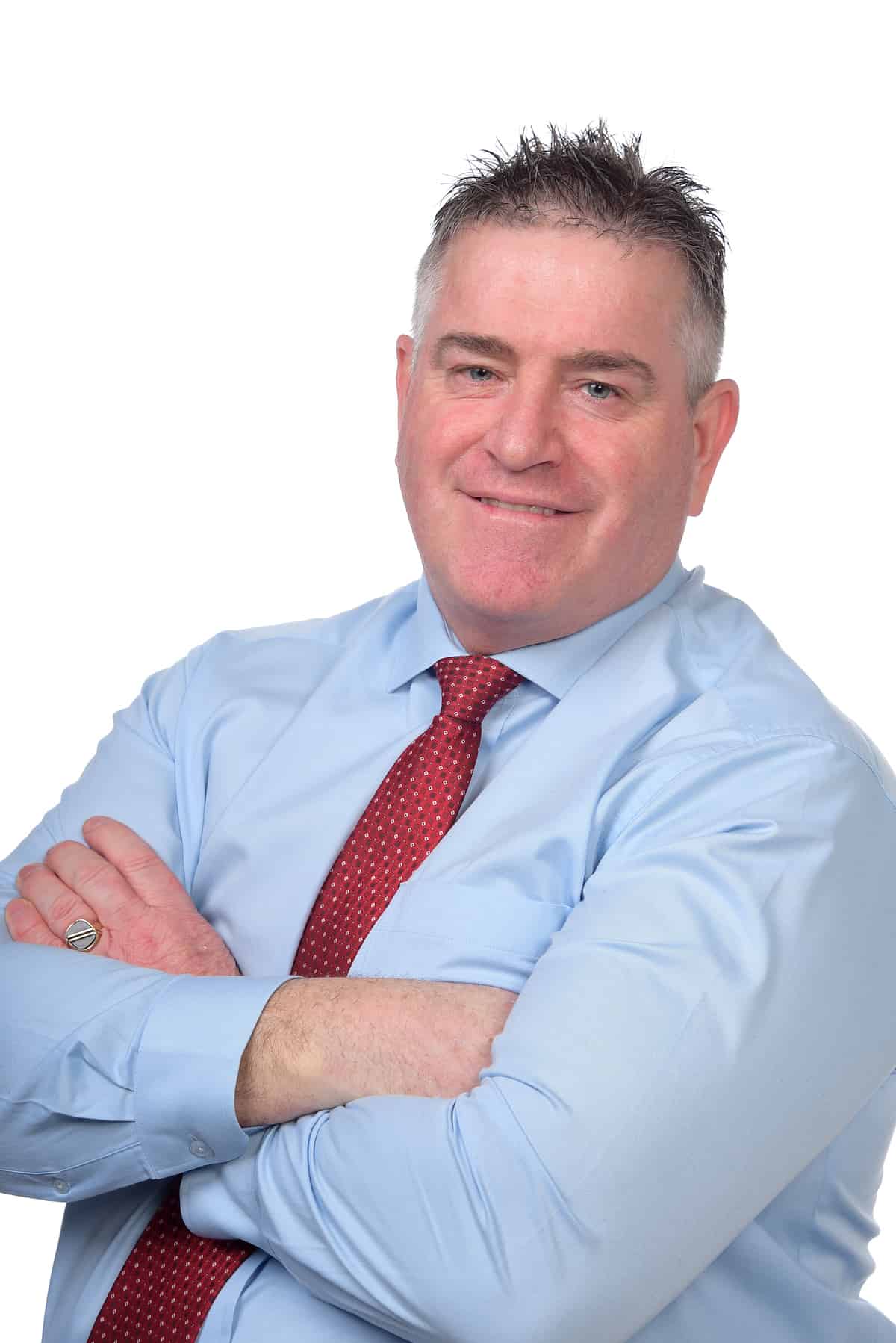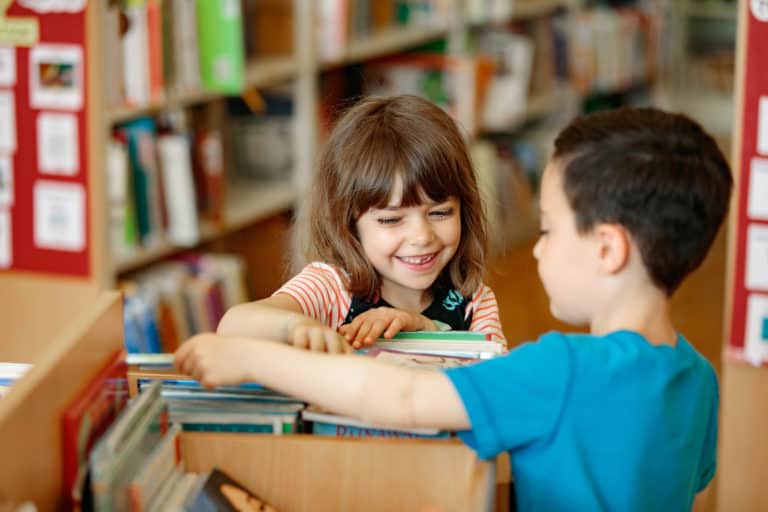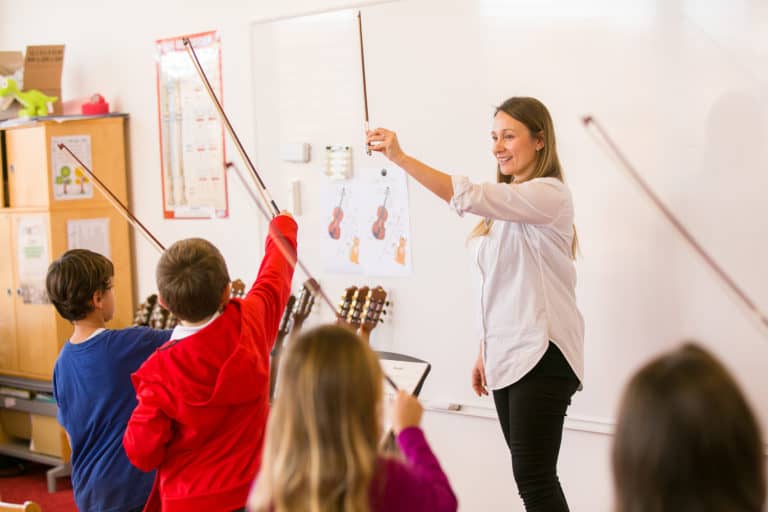Meet the Headteachers – Bradley Roberts – ISB

Bradley Roberts is the recently appointed Director at the International School Basel. Bradley is South African and has spent the last 20 years teaching at international schools in South Africa, Japan, Switzerland, and Qatar and most recently a seven-year stint at St Joseph’s Institution International in Singapore. He is married with two boys, and has extensive boarding school experience, having been a Housemaster for almost 13 years.
International School Parent Editor Nick Gilbert talks to Bradley about his experiences in education, his vision for the school, challenges in the future of education, and what makes him tick.
International School Basel (ISB), currently celebrating 40 years of history, is uniquely situated on the border of three countries. With its Swiss address, Basel also draws families from the suburbs of both France and Germany. Thus adding to the diversity of this IB World School, home to over 1,400 students.

What initially inspired you to pursue a career in education?
I started teaching friends and tutoring when I was at school as a teenager to help other people pass their exams. I grew up in South Africa under apartheid, and I come from a very humble background. In my household, I was the first to go to university. Luckily this was made possible because I won a teaching scholarship for the University of Witwatersrand. In return for the scholarship deal, I had to work for a couple of years at a state school in South Africa.
I met my wife, and we married in 1992. Part of my reason for moving onto the international teaching circuit was to allow my children opportunities to go to schools that showed them a different way of life. Teaching brought with it some fantastic opportunities to travel, and a different life approach that wasn’t available in South Africa.
How do your own life/work experiences inform your approach to your work?
I am a big advocate of a holistic approach to education. A one-size-fits-all is not ideal. Rather, students need individual treatment, and this is a vital part of helping children feel included, empowered, and that they’re a part of the community. In turn, this helps breed success in other areas. While supporting students to achieve the best possible academic results is important, it’s more important that we develop good human beings.
I am also a big believer in outdoor education. Although already offered at ISB, it’s something I would also like to develop by adding more activities and opportunities for our students.
What characterises the students graduating from International School Basel?
Developing a high-quality school is a careful balancing act. Unlike my previous schools, ISB has an inclusive admissions policy, accepting all students regardless of academic ability.
We want to develop the intellectual, personal, emotional and social skills required of students to live, learn and work in the rapidly changing world of tomorrow. Our students are also well prepared to transition to other schools around the globe when family circumstances necessitate a move to another city or country.
You can’t keep on doing the same thing if you want to be successful as a school, you have to remain open-minded, innovative and look out at the world to find out what the children need to be successful.
Our students are entering an extremely competitive world. Our students need to be well prepared for and aware of the competition, which increases every year.
The other big challenge is technology – it has changed the way we think, the way we work, the way we do business, and I want our students to be able to embrace this technology and use it to their advantage.
What would you say makes the learning environment extra special?
Well obviously, it’s still early days so of course, I am busy understanding what makes ISB truly special. However, ISB is a pretty large school which gives students a lot of choices. Both academically, and in terms of extra-curricular activities.
We have an excellent sports programme, with students participating in four different inter-school competitive leagues, including the SGIS league. More generally, and due to our size, we can cater for a wide range of needs which offsets the need to concentrate on academic entry requirements.
One other thing I think any school should be proud of is low staff turnover. We have a very stable team here, and I think that reflects well on the school. It’s a lovely environment to work in and as a result, a beautiful place to learn.
What are the main principles and philosophies you promote at the school?
We want to instil in our students a sense of what it means to be part of a community and to engage with purpose to effect decisive action in that community. We believe that as a place of learning, we have a responsibility to create open-minded thinkers that have a genuine desire to excel and to seize every opportunity with confidence and excitement.
How do you get children to do their best academically?
My outlook is that academic success is a by-product of the environment that you create. If you can create an environment where academic achievement and independent study is encouraged and welcomed, then it can only create success as an outcome.
How do you encourage understanding between cultures and nationalities?
We find that on a personal level, intercultural understanding comes quite naturally. Students are incredibly understanding and mature about the differences that make us unique and accept whoever they come across with warmth. The situation makes it even more comfortable because they have all been there themselves.

What is the best thing about leading an international school in Switzerland?
One thing you immediately notice is that Switzerland is excellently resourced. Things and systems work very well in Switzerland so you can guarantee that issues like visas and permits are ready when they say they will be. Well organised systems bring with them the advantage that finding people to work here is relatively easy. You can attract the very best teachers.
How do you make the most of everything Switzerland has to offer?
Well quite honestly because I am new to the school my hobbies have taken a back seat at the moment! We do have a dog, though, and one of the fantastic things about having a dog is that it forces you to get out and into nature. My wife decided that she would not start working just yet, so while I work during the week, then the weekends are very much for her. She has been planning some beautiful trips. We were in the black forest; we have done some lovely walks and visits to swiss lakes.
Another thing that is a nice change is living somewhere, which has defined seasons. After seven years of living in Singapore where every day is 30-32 degrees year-round, with high humidity, that is a significant change. The weather has been a big benefit to me personally of moving to Switzerland. It just makes you want to go outside!
Basel is also lovely as a place to live. It isn’t huge, but it has everything that you need. It also has the advantage of being surrounded by France and Germany. Although it doesn’t happen very often, we have shopped in France in the morning, come back for lunch in Switzerland and then had dinner in the evening in Germany. That novelty hasn’t yet worn off!
How do you help international students settle in when they first arrive?
Every top tier international school will have some form of arrival program for students, but also for the parents. Our welcome program here is no different and allows students to arrive and feel comfortable as quickly as possible, at any point during the school year.
We have so many cultures, and nationalities group represents many cultures and year levels and reflect the international, inclusive nature of ISB. We have an induction program for the new parents as well. The parent community is an essential part of our school. Through a host of informal and enjoyable opportunities organised throughout the year – such as day trips, coffee gatherings and receptions – they reach out to families to ease their transition and create opportunities for more significant interaction and communication within the school community.
When it comes to leaving ISB, I would obviously love it if every family stayed with us until the end, but due to the nature of international schools that is unlikely to apply to everyone. So, when families leave, we help parents with references, guidance, and help with those next steps after leaving. It’s vital that we get those following steps sorted so the students can continue their education with confidence.

What are the main trends in the school that you see at the moment?
Well locally, we are seeing a marked increase in the number of students going into our Reinach campus, which houses Grades 8 -12. This situation is in direct contrast to the student enrolment at Aesch. This school encompasses Early Childhood 1 – Grade 5, where numbers have dropped. From our research, we are seeing that this is a notable trend across international schools in Switzerland. Fewer pupils are taking up places at international schools in the early years.
What are the main challenges for education as a whole in the future?
Merely providing a standard education is not enough to help a child achieve their potential. In the information age, learning has never been more accessible to inquiring minds. We run the risk of the basic model of education becoming redundant as children master skills and explore subjects before the curriculum deems it time for them to learn. With this in mind, I think that the way forward is to create more bespoke timetables and to discover patterns that provide the students with the tools to advance their learning in the most efficient way possible.
The darker side of this technological surge is that our students have never been more exposed and vulnerable to bullying. I believe a primary challenge for education moving forward is going to be how we tackle this head-on and continue to make school a safe and welcoming environment.
How are you equipping your students for future success?
The main thing we want to instil in our students is the desire to become an open-minded, independent thinker and learner. A student who can take these skills and confidence, and apply them in the broader world after school. But, they must remain an expansive thinker. We believe these attributes can provide for them the building blocks for a successful life.
Further to this, a benefit of an international school is that it can provide an environment where a student can grow to value their own culture and values while developing a keen appreciation and knowledge of other cultures and ways of life. In doing this, we help to foster students with a desire to be an agent for positivity in the world.
About International School Basel
ISB is the only not-for-profit, English language, three programme International Baccalaureate (IB) World School in the region providing students aged 3-18 with the education, support and inspiration they need to become global citizens. For more information please visit www.isbasel.ch
More from Us
Find more articles like this here: www.internationalschoolparent.com/articles/
Want to write for us? You can submit an article for consideration here: www.internationalschoolparent.submittable.com
